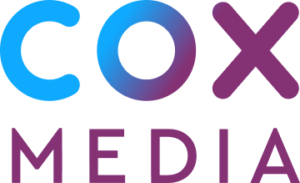Google Ads Smart Bidding: Can it Benefit Your Local Business?
As the Google Ads platform has evolved, new features and capabilities have been aimed at creating more value for its advertisers—including your local business. The logic here makes sense: if you’re getting better results for your ad campaigns, you’re more likely to spend more money on digital advertising, right?
At the same time, automation has streamlined ad buying while reducing the manual labor involved in planning, launching and managing campaigns. Google’s “Smart Bidding” solution is a package of bidding strategies supported by machine learning and other automated capabilities aimed at supporting campaign planning and optimizing ad performance and ROI.
This powerful new ad solution is supported by Google’s vast stores of first-party user data collected from across its web properties. But with limited ad budgets and even more limited resources to research and vet new advertising products, local businesses are right to be skeptical when choosing to embrace a new ad strategy—especially when they’re satisfied with their current campaign performance.
Curious about Google’s Smart Bidding and whether it makes sense for your business? Here’s what you need to know.
Top Features of Google Ads Smart Bidding
Google’s “Smart Bidding” solution is actually an umbrella term describing a handful of different bidding strategies aimed at maximizing conversions and/or conversion value in each ad auction. While the specific aim of each strategy is unique, each one benefits from four common features of Smart Bidding:
- Advanced machine learning. Machine learning algorithms process and analyze data on an enormous scale to deliver informed predictions of the optimal balance between auction bid amount and the resulting value from conversions. This intelligent, data-driven approach can create efficiencies and optimizations beyond the capabilities of more conventional analytics.
- Broader input from contextual signals. Intelligent bidding strategies can account for a wider range of contextual signals, such as device, location and time of day, to better quantify the potential value of each bid based on the individual prospect’s circumstances. This helps your campaign deliver ads to the highest-value prospects, and to adjust bid amounts based on the likelihood of a conversion.
- Flexible performance controls to better serve business goals. Custom performance targets and bidding settings give local businesses the option to optimize search advertising while choosing their preferred attribution model. Soon, Smart Bidding will also allow advertisers to set specific performance targets for each type of device (mobile, desktop, and tablet).
- Enhanced performance reporting. Along with customized performance targeting, Smart Bidding offers more transparent and data-driven performance reports offering insights unavailable through other advertising products. Advertisers can use simulators, bid strategy reports, bid experimentation and other tools to enhance their bidding and campaign ROI.
Business Impact of Implementing a Smart Bidding Strategy
Compared to other bidding and advertising strategies your business may be using, Smart Bidding offers a number of benefits across both campaign spending and overall business impact. These benefits can include:
- Reduced administration time setting up campaigns;
- Automated processes to “set and forget” campaigns;
- The ability to maximize conversion opportunities within a fixed advertising budget;
- Improved targeting capabilities through Google’s vast first-party data;
- A more affordable barrier to entry for local businesses;
- Greater profit potential over time—particularly as machine learning identifies new optimizations.
What Type of Business Can Benefit from Smart Bidding?
Certain types of ad products are so costly and intensive that they are unaffordable or impractical for small, local businesses. But Google’s Smart Bidding solution is scalable and functional for businesses of any size, offering cost-efficiencies and entry-level costs that many small businesses can afford.
The key to realizing the full value of Smart Bidding is to commit to a longer timeline for the campaign. Even on a limited monthly budget, Google recommends that advertisers fund ad campaigns until they have achieved at least 30 to 50 attributed conversions. This larger sample size provides sufficient data for Google’s machine learning algorithm to analyze data and trends for possible optimizations that improve campaign performance.
If your business is prepared to commit to this timeframe—which typically takes a month or longer to collect adequate data—then your business is a great candidate to leverage Smart Bidding for its full potential.
How to Avoid the Pitfalls of Google’s Smart Bidding Solution
For all of the potential benefits and advantages offered through Smart Bidding, no advertising product is foolproof. Google’s Smart Bidding solution can create new efficiencies and optimizations for your ad campaigns, but inexperienced Google Ads users might be frustrated by its audience targeting capabilities, for example, or by the longer period of time required for Google’s machine learning capabilities to “learn” from campaign performance and implement optimizations.
As a local business, your best safeguard against these potential problems is to partner with a digital advertising partner familiar with Smart Bidding and how to leverage this solution in your larger digital ad strategy. Cox Media’s advertising experts understand the ins and outs of Google’s ad capabilities, and they can help any local business leverage Smart Bidding alongside our other ad solutions and integrations
Find out how we can help—contact us today to learn more.
Connect with a Marketing Expert
Share Post On Social
Related Insights
Connect With Your Local Marketing Expert
You know your business. We know advertising. Together, we can bring your business to more people. Contact a member of our team today. We’d love to help you grow.

